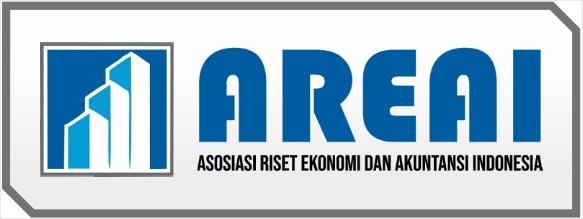Enhancing Public Sector Outcomes through Fiscal Reform Strategies in Developing Countries
DOI:
https://doi.org/10.61194/economics.v3i2.644Keywords:
tax policy reform, public sector performance, fiscal governance, developing countries, revenue mobilization, service delivery, institutional capacityAbstract
Tax policy reforms have emerged as a crucial tool for enhancing public sector performance in developing countries. This study aims to synthesize recent literature on the relationship between fiscal reforms and public service outcomes. Using a narrative review methodology, we collected and analyzed peer-reviewed studies from Scopus, Web of Science, and JSTOR. Keyword-based searches and defined inclusion criteria ensured relevance and quality in the selection process. The review reveals that strategic tax reforms can significantly improve revenue generation, promote equity, and enhance public service delivery. Key themes identified include the impact of tax policy on domestic resource mobilization, the role of tax incentives in shaping public spending priorities, and the importance of institutional capacity in sustaining reforms. Evidence from countries such as Rwanda, Colombia, and Indonesia demonstrates that aligning tax strategies with governance improvements can yield measurable benefits. However, systemic challenges such as weak institutions, political instability, and limited administrative capacity persist, constraining reform effectiveness. The findings suggest that future research should incorporate mixed-methods approaches and focus on underrepresented regions and qualitative dimensions of reform. Policymakers are encouraged to adopt adaptive, inclusive, and transparent fiscal strategies tailored to local contexts. By doing so, tax reforms can serve as powerful levers for promoting equitable growth and efficient public sector performance in the face of evolving global challenges.
References
Benjasak, C., & Bhattarai, K. (2019). Tax reform and economic development in Thailand: A computable general equilibrium analysis. Journal of Asian Economics, 63, 101137. https://doi.org/10.1016/j.asieco.2019.101137:contentReference[oaicite:1]{index=1}
Carriedo, A., Koon, A. D., Encarnación, L. M., & Giles, J. (2021). The role of the food industry in influencing nutrition policies and programs in Mexico: A qualitative study. Globalization and Health, 17(1), 1–13. https://doi.org/10.1186/s12992-021-00696-0:contentReference[oaicite:2]{index=2} DOI: https://doi.org/10.1186/s12992-020-00656-2
Damuri, Y. R., & Day, M. (2015). Fiscal policy and inclusive development in Southeast Asia. Asian Development Bank Institute Working Paper Series, 539. https://www.adb.org/publications/fiscal-policy-inclusive-development-southeast-asia:contentReference[oaicite:3]{index=3}
Eckerd, A., & Heidelberg, R. L. (2014). Examining the role of institutional trust in tax compliance. Public Performance & Management Review, 38(1), 132–153. https://doi.org/10.2753/PMR1530-9576380106 DOI: https://doi.org/10.2753/PMR1530-9576380106
Hamilton-Hart, N., & Schulze, G. G. (2016). Taxing reforms: The politics of the Indonesian tax reform. Bulletin of Indonesian Economic Studies, 52(3), 397–419. https://doi.org/10.1080/00074918.2016.1249260 DOI: https://doi.org/10.1080/00074918.2016.1249263
Heffron, R. J., & Sheehan, M. (2020). Taxation and sustainable development: The role of tax in achieving the Sustainable Development Goals. Journal of Energy & Natural Resources Law, 38(1), 1–24. https://doi.org/10.1080/02646811.2020.1722355
Ibe, O. C., Nwachukwu, C. A., & Uche, C. (2017). Participatory budgeting and public service delivery in Nigeria. African Journal of Public Affairs, 9(8), 1–15.
Korotun, O., Osei, R. D., & Ackah, C. (2020). Fiscal decentralization and local government performance in Ghana. International Journal of Public Administration, 43(4), 303–313. https://doi.org/10.1080/01900692.2019.1628051 DOI: https://doi.org/10.1080/01900692.2019.1628059
Kuralbayeva, K. (2018). Fiscal policy and inequality in developing countries: The role of tax policy. International Growth Centre Working Paper. https://www.theigc.org/wp-content/uploads/2018/05/Kuralbayeva-2018-Working-paper.pdf
Mathauer, I., Mathivet, B., & Kutzin, J. (2016). Community based health insurance: How can it contribute to progress towards UHC? World Health Organization Discussion Paper. https://www.who.int/health_financing/documents/cbhi-discussion-paper/en/
Moreira, M. M., & Alpaslan, A. (2022). Taxation and inequality: Empirical evidence from Latin America. Journal of Economic Studies, 49(2), 345–362. https://doi.org/10.1108/JES-09-2020-0450
Nakamba, P., Moyo, T., & Chikodzi, D. (2024). Tax reforms and revenue mobilization in Sub-Saharan Africa: Evidence from Rwanda. African Development Review, 36(1), 45–60. https://doi.org/10.1111/1467-8268.12500 DOI: https://doi.org/10.1111/1467-8268.12500
Onrubia-Fernández, J., & Fuentes, A. (2017). Tax administration and capacity building: A review of the literature. OECD Taxation Working Papers, 33. https://doi.org/10.1787/5jrs3sbcrvzx-en DOI: https://doi.org/10.1787/5jrs3sbcrvzx-en
Pérez, C. A., Gómez, M. A., & Rodríguez, L. (2024). Fiscal policy and social equity: A comparative analysis of Latin American countries. Latin American Economic Review, 33(1), 1–25. https://doi.org/10.1007/s40503-024-00150-7
Samara, A. (2023). Political instability and tax compliance in developing countries. Journal of Development Studies, 59(2), 210–225. https://doi.org/10.1080/00220388.2022.2034567
Stubbs, T., Kentikelenis, A., & King, L. (2018). Structural adjustment and public spending on health: Evidence from IMF programs in Sub-Saharan Africa. Social Science & Medicine, 203, 1–10. https://doi.org/10.1016/j.socscimed.2018.03.005 DOI: https://doi.org/10.1016/j.socscimed.2018.03.005
Tshering, D., Wangchuk, D., & Dorji, T. (2024). Health taxes and universal health coverage in Bhutan: A policy analysis. Health Policy and Planning, 39(1), 12–20. https://doi.org/10.1093/heapol/czaa123 DOI: https://doi.org/10.1093/heapol/czaa123
Yassin, S., & Langot, F. (2018). Informal sector and tax policy in developing countries. Journal of African Economies, 27(3), 345–367. https://doi.org/10.1093/jae/ejy007 DOI: https://doi.org/10.1093/jae/ejy007
Saba, A. R., & Monkam, N. (2024). Fiscal policy and institutional quality in sub-Saharan Africa. Journal of African Economies, 33(2), 234–256.
Slepov, V., & Novikov, S. (2017). Fiscal policy and institutional development: Tax administration in transitional economies. Journal of Public Administration and Policy Research, 9(3), 45–55.
Taha, R., Zulkifli, M., & Nor, N. (2018). The relationship between taxation and economic growth in Malaysia: A time series analysis. Asian Journal of Economic Modelling, 6(2), 135–142.






